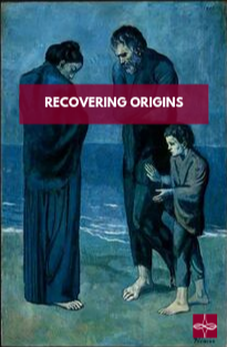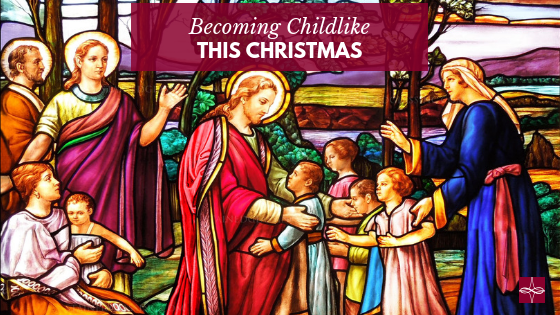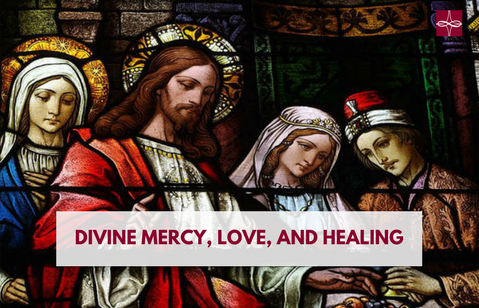|
3/31/2020 Altered States: Living With Adult Children During Coronavirus | COVID-19 ResourceRead NowAs parents in our early sixties, living in household with our 25, 23 and 19 year old adult children is proving to be an interesting challenge during this pandemic. We have successfully transitioned from training six little ones to launching three and sharing our household with the remaining three. Each of us lives what I consider ‘parallel’ lives under one roof. We all go to our respective jobs, enjoy our own friend groups, and participate in our specific extra-curricular activities, along with sharing family time together. It is a state of life that has forged a certain routine that is pleasantly habitable. Slam dunk us all into the middle of an unprecedented disease that turns our world upside down overnight – and our happy coexistence becomes challenged. We are forced to adapt to new schedules and new restrictions that we all must willingly cooperate with. Moving from government recommendations to ‘imposed sanctions’ is met with varying reactions from the five in our household. Those of us who are easily contented engaging in solitary activities are not so affected. We find new books to read, projects in the house or the yard, a nature series to watch, extra time to participate in the Chaplet of Divine Mercy, the Rosary and the Mass on tv. Those of us who are energized by hanging out with our peer group, attending public events, or going out to restaurants and pubs find these restrictions close to being imprisoned. Our foremost responsibility as parents during this uncertain time is to be very intentional in communicating with our young adults about the ‘rules’ and the ‘whys’ and the ‘wherefores’ of cooperating in a Godly manner to all of this. We speak daily of the importance of adhering to social distancing and the extra measures of hygiene and disinfecting while allowing our children to express their frustrations, share new information, and ultimately come to agreement to remain steadfast in cooperation when it is difficult. I can’t stress enough the necessity of speaking daily in a positive manner so that we all help keep each other accountable. Getting independent, self-sufficient young adults to operate from the same page is most definitely a tight rope act. I’m accompanying them in a way I never have before. It requires lots of talking and more listening. It necessitates creative ways of encouraging. Each family dynamic is different, but in my male-dominated household, what I have found brings us together is food. My plan these days has been to cook, cook, and cook some more! Preparing meals that satisfy and draw us together opens us to sharing our thoughts and feelings and encouraging one another with what we find most difficult. In our discussions, our adult children share their creative ways they have found to connect with friends and to cope with the temporary suspension of activities they regularly participated in. Our pace of life has slowed considerably. My job is on temporary shutdown, but everyone else still goes to their jobs on altered shifts with no work meetings. When they arrive home, I make sure a meal is ready and we talk and pray and relax together. They are quicker about getting their laundry done, and helping keep common areas of the house disinfected every day. This altered state of living builds character in each of us. We are being called to willingly forego engaging in activities we love for the greater good of our fellow man. Practicing restraint, perseverance, respectfulness, and kindness allows us to grow in holiness that builds up the kingdom of God. This witness promotes community and joy amidst the pain and devastation that is all around us. One activity we have purposely not engaged in during this pandemic is watching or reading the news regularly. We do not watch any major news telecasts and keep apprised of current affairs through government messages and the several medical people in our family. We choose not to obsess on what is happening hour by hour. Instead, we focus on praying, eating well, getting extra sleep, playing games, watching movies, reading books, and pursuing our hobbies in our home space. We essentially have created our own little bubble to weather this storm together while continuing to participate in our normal duties to the extent that complies with social distancing. We are fortunate to live in a digital age where we can access a degree of connectivity through our various devices and remain a safe distance apart. We were created to be relational. We do not want to live this way solely, but we have the privilege of being connected to others like no other time in history. So far, in our semi lockdown mode – no one has blown up at another, no one has a crazed look about them, no one has run away! We are all present and accounted for under one roof amidst significant life changes. Our home remains a sanctuary of harmony and peace. This altered state of living together is a fruit of ‘grace’ that I believe God is showering on us. He is equipping us as we pray with the virtues of prudence and perseverance. He is covering us with His balm of peace to behave respectfully and kindly to one another. I am mindful of my continued dependence on the Holy Spirit’s grace to guide me as a mother. My prayer is for parents everywhere to walk in faith with your children in the will of God and grow in peace and joy together, whatever the circumstances!
0 Comments
Recently, I went on a powerful retreat put on by the Diocese of Arlington called “Recovering Origins: A Unique Healing Program for Adult Children of Divorce.” While we are all indeed wounded, this retreat focuses on themes relevant specifically to adult children of divorce and attempts to isolate and work through the particular wounds associated with those who have divorced parents. Feeling ignored for many years due to societal pressures and shifting cultural norms, the group on this retreat seemed to breathe a collective sigh of relief: “we are finally being seen.” It would indeed take many pages to delve into the issues that we as adult children of divorce carry, and there has recently been quite a bit of literature on the subject. While this is not the forum to add to this literature, I will say that this retreat, and those participating, left an incredible impression on me. This group of people were quite possibly the most sensitive, respectful, empathetic, faithful, and encouraging group of people I have ever encountered. In all of our discussions about the wounds we carry, there was an air of kindness, understanding, and respect. Had I met these people outside of this retreat, I never would have guessed the depths of the wounds they carry. Through our discussions, one major thing I realized that was common among the group was that they did not recognize in themselves the profound goodness that I saw in them. Through the mess of their parents’ divorces, I sensed a loss of knowledge of their own inherent goodness. What is important about the word inherent? It is important in that it calls on us to remember our divine filiation; that we are first and foremost adopted children of God and we receive our goodness, identity, and worth through this fact alone. God created us in His goodness, not because He needed us, but because He wanted us. This is what is inherent in each of us— this divine filiation, this belonging to the Creator of all creation. This, indeed, is our core identity—but it often gets lost in a child when their parents go through a divorce. This retreat, I believe, helped us to recover this important fact. Don’t we all, in some way or another, feel this loss of our identity, of our inherent goodness? I suspect the answer is yes. If so, how do we move forward? First, I believe we start by recalling—daily if we have to—that our core identity, goodness, and worth is rooted in Jesus Christ through divine filiation. We can do this through spiritual practices such as quiet prayer, Gospel reading, or Adoration. Second, as I learned on the retreat, we must have mercy on ourselves for how we reacted or behaved during our most painful moments. We must not underestimate ourselves nor our feelings, but rather appropriately grieve through them by allowing the Father to walk with us as we do so. And lastly, it is important to allow the Father to gaze at us with His love, and let that love transform our wounds into strengths. In these ways, you will “recover the origin” of your identity as a son or daughter of God, and live fearless, bold, Christ-centered lives, regardless of whether you are an adult child of divorce or not. For more information on the Recovering Origins Retreat and the Life-Giving Wounds ministry, please click here. Just before Advent, the Holy Father was leading his usual general audience when a six-year-old autistic boy, Wenzel, escaped from his family and wandered towards the pope. Blissfully unaware of the attention he was now attracting, young Wenzel scurried about Pope Francis and interacted with his surroundings—including a Pontifical Swiss Guard standing at attention nearby. After the boy’s mother explained the situation to the Holy Father, Pope Francis encouraged her to let him continue to play and then offered a beautiful teachable moment to the thousands gathered in the Paul VI audience hall:
This boy can’t talk, he is mute but he knows how to communicate. He knows how to express himself. He has something that made me think: He is free. An undisciplined freedom… but he is free. It made me think, “am I also free like that before God?” When Jesus says that we have to become like children He tells us that we have to have the freedom that a child has before his father. I think [Wenzel] preached to all of us. In referencing the call of our Lord to “become like children,” Pope Francis affirmed the unique dignity of even the youngest of human persons, namely their innate innocence, senses of wonder and curiosity, and free-spirited (and sometimes seemingly limitless) energy. Rather than characterizing the source of the “disruption” as having to be managed or handled—perhaps as parents of autistic children are all too familiar with in social situations—the pope celebrated the liveliness of the circumstances and explained that the faithful could spiritually benefit from imitating the blessed boy before them. Children are unconcerned with headlines, deadlines, schedules, requirements, and the expectations or the judgements of others. They often simply have wants they seek to fulfill and they set about observing and learning from their surroundings. They do not immediately know everything they should, and they recognize many of their needs require receiving help from another. When our Lord first called upon His disciples to become like children in order to enter the Kingdom of Heaven, He had called a child to Himself before those gathered around. I imagine the adults immediately thought to themselves, “What could I possibly gain from becoming a foolish, helpless youth? I am successful now, I know so much now, and not because I kept thinking or acting like a child!” Adults are all too susceptible to pride, be it of power, status, wealth, or knowledge. We get caught up in what the world (i.e. bosses, politicians, friends, and peers) expects of us in order to attain some level of temporal success. We entangle ourselves in the circumstances of situations, the reasons to do or not do something, and we may let too many external influences affect us unnecessarily. While intelligence or critical thinking itself is not a bad thing, adults may overthink certain situations a child would otherwise address head-on. For example, wanting to charitably help the less fortunate may tug at the heartstrings of a child to engage with that person; an adult, however, may become distracted from the needs of that person before him or her with personal judgements (or those of others around), embarrassment, selfishness, or any number of reasons to not offer assistance. Becoming like a child, then, would seem to be more pure and innocent. Think of the demands of Christianity: love God more than yourself, care for your neighbors, avoid sin and sacramentally repent whenever you fail, faithfully go to church, generously give to the needy, pray for your enemies, and serve others humbly before yourself. These commands are not meant to be burdensome or harsh except to whatever pride or selfishness we cling to. Adults may overthink their capabilities to do good and avoid evil when evaluating circumstances and how to act. To children, however, these acts are simply directives they should obey and not question or “situationalize.” This Christmas, let us renew our childlike faith by freeing our hearts and minds of prejudice and overcomplicated justifications. Our lives should be spent ministering and witnessing to God Who made each of us. In mirroring the innocent freedom of children, we can enhance our goodwill and loving charity towards others and increase our devotion and faith in God. Let us remember that our Heavenly Father loves us unconditionally: so much so that the Almighty sent His Son to dwell among us as a helpless Child. Questions for Reflection: Why did Christ say we must become like children in order to enter the Kingdom of Heaven? Have you ever learned an important truth or lesson from a child? For more resources to accompany you on your Advent journey, please click here. The Latin word for mercy is misericordia, which is formed from two other Latin words: “miseriae,” which means misery or suffering, and “cordia,” which means heart. One could thus say that the mercy of God draws misery out of a person’s heart. It is of the nature of mercy to therefore heal wounds. The mercy we are speaking about here is broader than the reception of forgiveness from God and granting forgiveness to others. It includes all of the spiritual and corporal works of mercy, which are also aspects of God’s very own love for us. As Pope St. John Paul II once said, “Mercy is love’s second name.” However, in this brief post, I’m going to focus on that aspect of mercy we are the most familiar with – forgiving and receiving forgiveness. I am an adult child of divorce, so I have seen first-hand what the lack of forgiveness can look like. I believe that divorce typically involves one or both parents withholding mercy. There are, of course, other complicating factors for the divorce, but I believe there is usually a failure of mercy somewhere in the relationship. I knew I did not want to repeat the mistakes of my parents, so I took a long look at mercy and examined how it might be a key to love and to healing wounds. In terms of love, I have always been struck by the beautiful reality that Matthew 19, which is Christ’s strongest teaching about the indissolubility of marital love, is preceded by one of Christ’s strongest teachings on mercy in Matthew 18, where he exhorts his followers to forgive 77 x 7 times. This number is a symbolic way for saying, “infinitely and unconditionally.” The proximity of these two teachings in the Bible suggests that the form of indissolubility is merciful love. Merciful love is not optional in relationships, but the foundation for its long-term success. Offering forgiveness gives a new beginning to the one who offends and helps relationships build from injuries that inevitably arise in any relationship, even great ones. As Ruth Graham, the wife of the recently deceased protestant minister Billy Graham said, “Marriage is a union of two good forgivers.” To offer forgiveness in the radical sense Christ is proposing here, we need to experience Divine Mercy ourselves. We can do this by going frequently to the Sacrament of Reconciliation and understanding what is occurring. In the Sacrament of Reconciliation, we receive unmerited forgiveness from Christ. He does not owe us forgiveness and yet he forgives. He also always forgives us despite the number of times we repeatedly fail at the same sin. “Christ never tires of mercy,” Pope Francis reminds us. And Christ forgave us while we were sinners before we were even repentant and able to receive that forgiveness. His cry on the Cross, “Father forgive them, for they know not what they do,” is echoed down through the centuries. When we experience this unmerited forgiveness in the Sacrament of Reconciliation, we are healed because we recognize that Christ loves us “just because.” He does not love us because we do not have sin, failures, or weaknesses. He loves us despite these things and the ugliness of our actions. He loves us “just because” we are always His beloved. Of course, Christ wants us to be repentant, to promise to be holy and sin no more, in order to be reconciled with Him and others. Yet at the same time, we must never forget that this divine forgiving love always remains unmerited because Christ loves unconditionally. With the reception of this Divine Mercy, we can then live mercifully in our own relationships in the same way and not be afraid when we or our spouse, friends, or family make mistakes, have conflict, or sin. These things happen; we are not perfect. In such moments, it is always possible to forgive, to receive forgiveness, and to love if we draw continually upon God’s grace and forgiveness. By doing so, we’ll experience healing and a deeper unity again and again through mercy. Questions for Reflection: When was the last time you received the Sacrament of Reconciliation? How have you experienced God’s mercy? Growing up in a stereotypical American Catholic family, my parents always kept our faith at the center of family life. While we didn’t go so far as nightly recitations of the rosary together, I did have a very faith-centered childhood. My weeks generally pivoted around two regular Church activities: Sunday morning Mass and Tuesday night Religious Ed. We always ate dinner together as a family and prayed before the meal no matter what. When my sister and I were young, they read us stories out of our children’s Bible, and as we got older, they encouraged us to receive the sacrament of Confirmation and continue our faith journey as adults when we each went to college. Overall, I daresay they were successful: my sister and I still attend Sunday Mass on our own, and I’ve maintained further involvement in Church through the Knights of Columbus.
While my mom and dad had very different approaches to sharing the faith with us, they consistently worked as a team to make sure we had a Christ-centered upbringing. The reason for this, as I look back, is obvious: they have always had a Christ-centered marriage. Both came from Catholic families of 5 or more (Dad was one of 12!) and have always relied on their relationships with God to guide them through life’s difficulties and joys. There is always a Bible on hand, and numerous crucifixes and pictures of Mary are scattered throughout their home. The presence of God in our daily lives is something regularly acknowledged in everything we do as a family. I don’t know what kind of marriage prep they went through before their wedding, but it is clear that they understand marriage for what it is: a Vocation, a calling from God. Everything my parents do, they do for each other. Whether it was Dad helping with the laundry on Sunday mornings, Mom keeping a plate warm when Dad worked late or had a Scout meeting, or giving each other breaks from me and my sister, their lives have always been focused in on our life as a family. I once heard that the home should be like a “miniature Church”. My parents have gone above and beyond in making that a reality for our family, whether any of us realized it or not. In the Church, we always make a point of praying for Vocations to the priesthood and religious life, but I believe we’re often forgetting the other all-important Vocation to married life. That is not to say that we don’t need to pray for more holy priests, brothers, and sisters; we do! But I propose that we pray just as hard for true, faith-formed Vocations to marriage. With all the broken families we see in our society, it almost seems a miracle to meet couples who have remained faithful and totally in love. Those are the couples who, whether religious or not, view their marriage as a higher calling to give themselves totally to one another. In Gaudium et Spes (aka The Pastoral Constitution on the Church in the World), promulgated by Paul VI during Vatican II, we hear that “married people can become witnesses of the mystery of love which the Lord revealed to the world by His dying and His rising up to life again.” This speaks directly to the self-giving nature of a true Christian marriage; spouses are called to mimic the love between Christ and the Church, the bride which He died for. Any happily married couple can attest to the great deal of self-sacrifice needed to maintain a healthy marriage. What our world so desperately needs is right in front of our faces: with families splitting up left and right, marriage has been devalued to no more than a “feel good” reaction. The understanding of marriage as a calling to daily self-sacrifice must be emphasized if we are to reverse the trend of so many broken families and such a high divorce rate. My parents, who celebrate 25 years of marriage today, are one of the millions of couples throughout the world who strive to answer their daily call to empty themselves for one another as Christ did for each of us. Please join us in praying that their collective example will inspire young couples to focus their intentions on creating that same kind of self-giving love. Jay Schaefer is the Webinar Associate of the Catholic Apostolate Center, in addition to his full-time career as a Civil Engineer in Baltimore, MD. |
Details
Archives
July 2024
Categories
All
|
About |
Media |
© COPYRIGHT 2024 | ALL RIGHTS RESERVED










 RSS Feed
RSS Feed